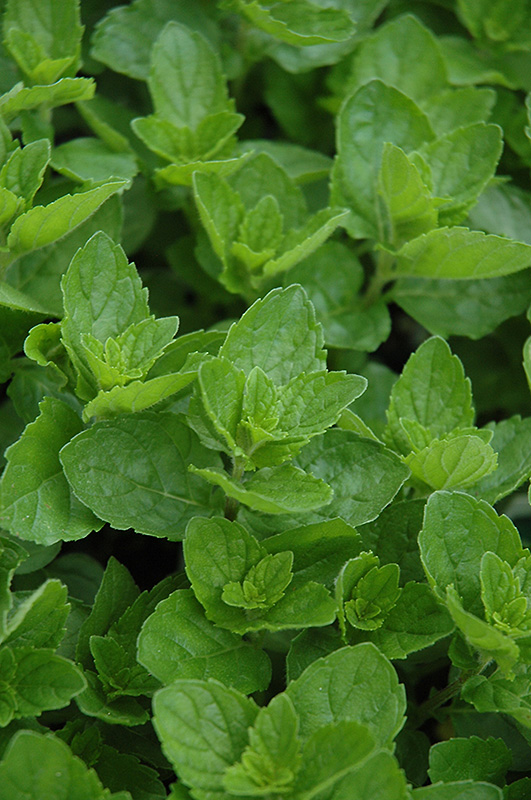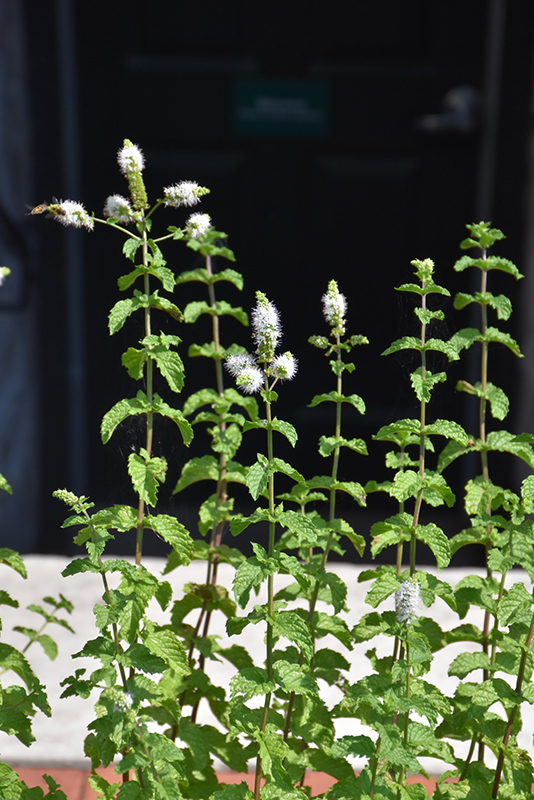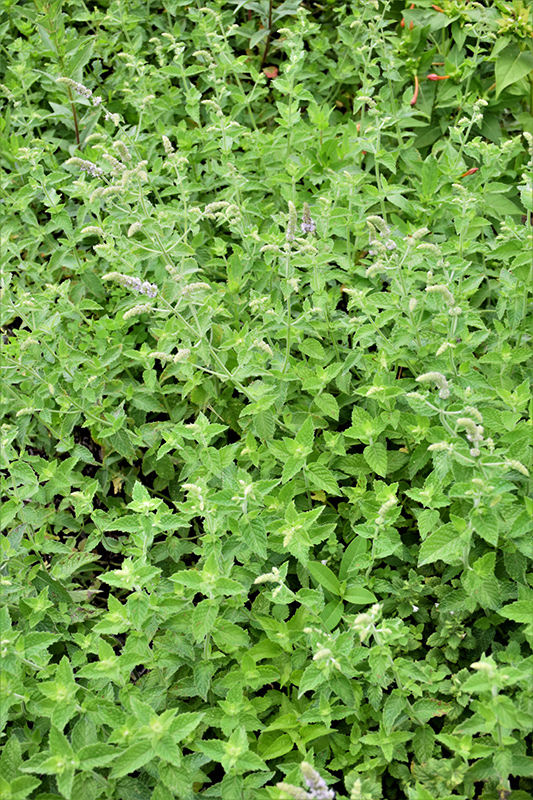Plant Finder
Height: 24 inches
Spread: 3 feet
Sunlight:
![]()
![]()
Hardiness Zone: 3
Description:
This variety has aromatic leaves that are used for flavoring in many foods; lilac flowers rise above in late summer; great container plant and it is suggested that planting within a pot in the ground will curtail invasiveness
Edible Qualities
Spearmint is a perennial herb that is typically grown for its edible qualities, although it does have ornamental merits as well. The fragrant oval green leaves are usually harvested from late spring to early fall. The leaves have a minty taste.
The leaves are most often used in the following ways:
- Fresh Eating
- Cooking
- Seasoning
- Tea
Features & Attributes
Spearmint features bold spikes of lilac purple tubular flowers with white overtones rising above the foliage in late summer. Its attractive fragrant oval leaves remain green in color throughout the season.
This is an herbaceous perennial herb with a spreading, ground-hugging habit of growth. Its medium texture blends into the garden, but can always be balanced by a couple of finer or coarser plants for an effective composition. This is a high maintenance plant that will require regular care and upkeep, and should be cut back in late fall in preparation for winter. It is a good choice for attracting bees and butterflies to your yard, but is not particularly attractive to deer who tend to leave it alone in favor of tastier treats. Gardeners should be aware of the following characteristic(s) that may warrant special consideration;
- Invasive
Aside from its primary use as an edible, Spearmint is sutiable for the following landscape applications;
- Mass Planting
- General Garden Use
- Herb Gardens
- Container Planting
Planting & Growing
Spearmint will grow to be about 24 inches tall at maturity, with a spread of 3 feet. Its foliage tends to remain dense right to the ground, not requiring facer plants in front. It grows at a fast rate, and under ideal conditions can be expected to live for approximately 10 years. As an herbaceous perennial, this plant will usually die back to the crown each winter, and will regrow from the base each spring. Be careful not to disturb the crown in late winter when it may not be readily seen!
This plant is quite ornamental as well as edible, and is as much at home in a landscape or flower garden as it is in a designated herb garden. It does best in full sun to partial shade. It does best in average to evenly moist conditions, but will not tolerate standing water. It is not particular as to soil type or pH. It is highly tolerant of urban pollution and will even thrive in inner city environments. This species is not originally from North America. It can be propagated by division.
Spearmint is a good choice for the edible garden, but it is also well-suited for use in outdoor pots and containers. Because of its spreading habit of growth, it is ideally suited for use as a 'spiller' in the 'spiller-thriller-filler' container combination; plant it near the edges where it can spill gracefully over the pot. It is even sizeable enough that it can be grown alone in a suitable container. Note that when growing plants in outdoor containers and baskets, they may require more frequent waterings than they would in the yard or garden.
Disclaimer - Rutgers Landscape & Nursery Plant Finder is an online resource representing many of the varieties that we carry over the course of the season, and is intended for informational purposes only. Inventory varies seasonally, so we cannot guarantee that every plant will be in stock at all times - please contact Rutgers directly for current availability.



